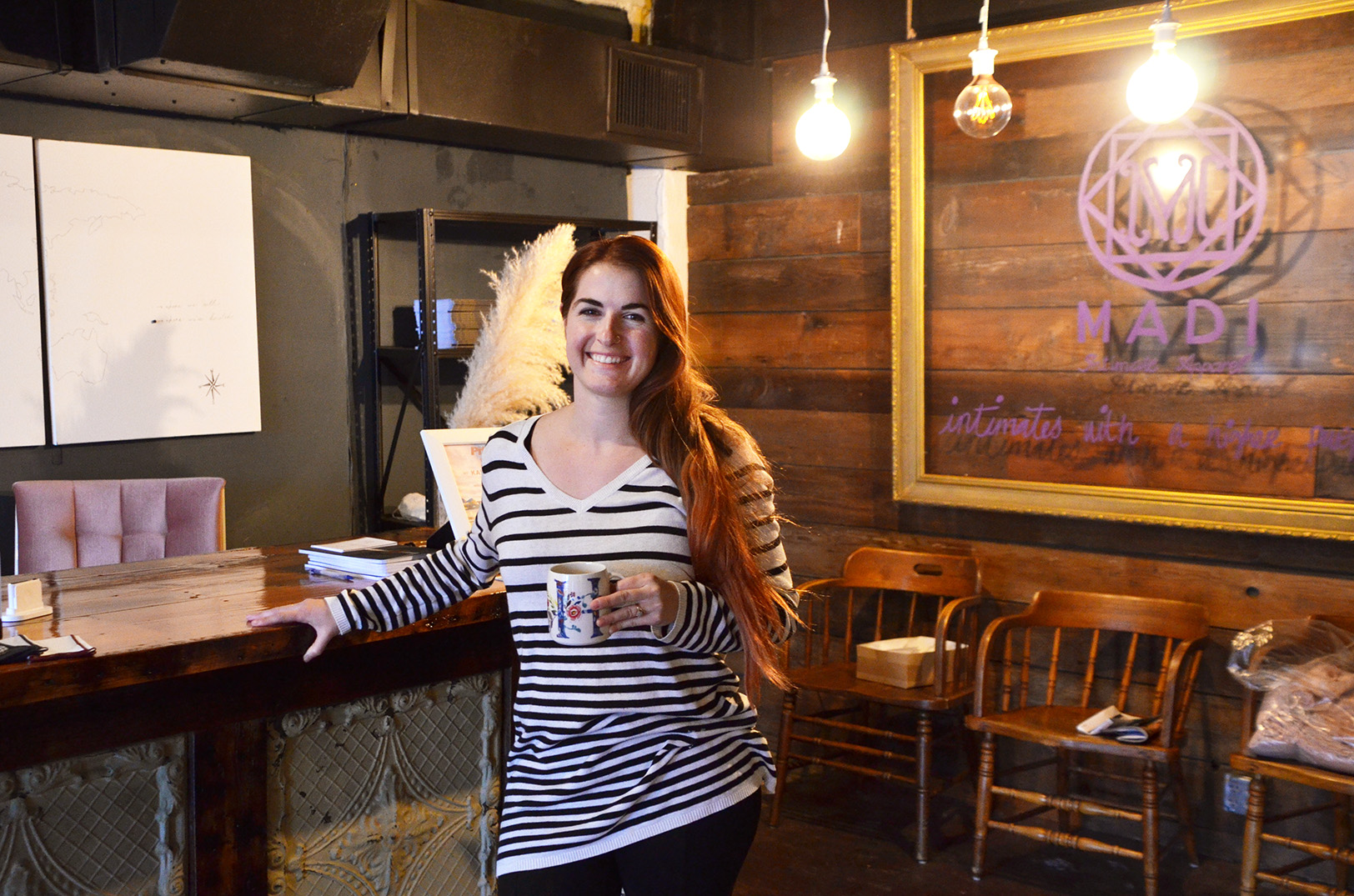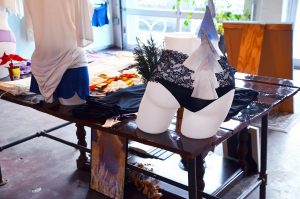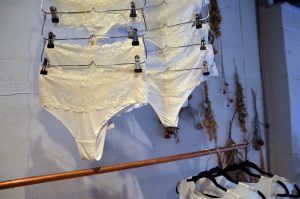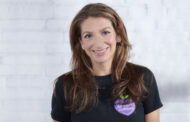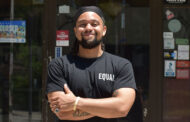Hayley Besheer relocated her apparel company’s headquarters from Florida to Kansas City after discovering a vibrant entrepreneurial ecosystem and curious customer base, the founder of MADI Apparel said.
“Here [in KC] it feels more like [customers can] come into our space and can learn about the mission and [in Florida] everything was sold on online,” said Besheer, standing in the flagship store she stitched into the fabric of the local fashion scene in 2014. “It really started to feel more as if Kansas City was supporting the women that they were donating to, and more like the buyer is empowering the women [directly] as opposed to through a computer screen.”
MADI — Make A Difference Intimates — delivers high quality intimate apparel made from a bamboo fabric. The company partners with 13 organizations in the metro to donate a pair of underwear to women in shelters for every pair sold, Besheer said.
Fabric made from bamboo fibers are expected to be long lasting, odor preventing, and fast drying, she added, with the slight damage to the environment in the harvesting process being the only downside to the sustainable brand.
The MADI team found that underwear was one of the most urgent needs among domestic violence victims and survivors, said Besheer, noting that most people don’t spend much on the highly necessary, everyday item.
“As a society, we consider underwear as like throwaway items, but it shouldn’t be that way because that is the No. 1 thing that actually literally matters — it protects you,” she said. “It’s a matter of confidence. It’s not just underwear, it’s dignity.”
Click here to shop MADI Apparel.
MADI Apparel also is solid at the Made in KC Marketplace on the Country Club Plaza.
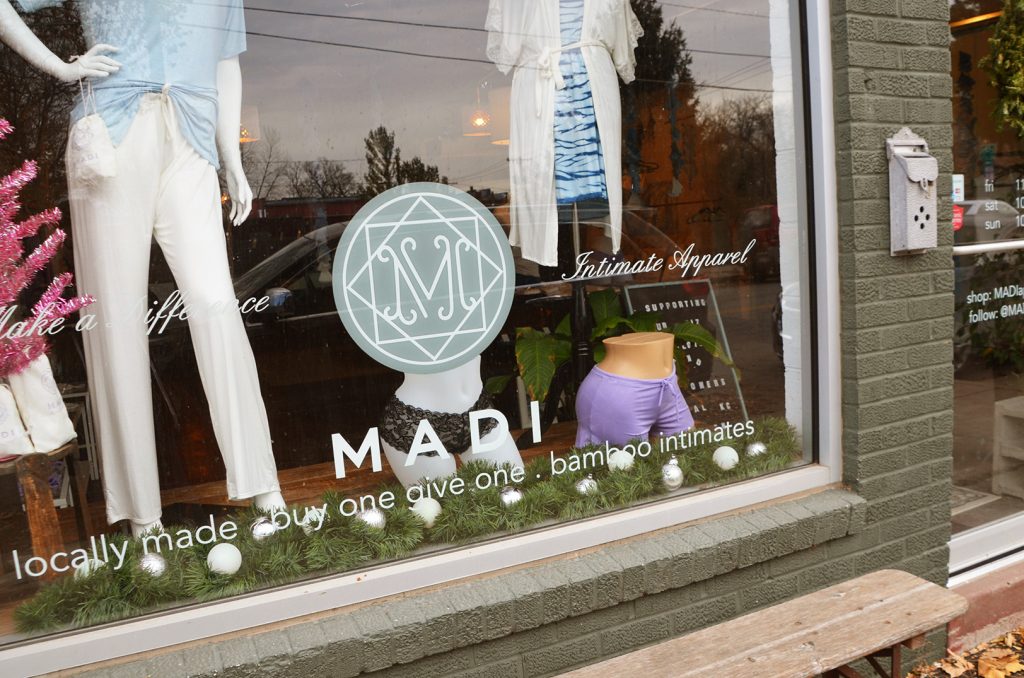
Storefront and online sales are evenly balanced, said Besheer, but the brick-and-mortar atmosphere is more conducive to explaining the mission behind the items and the importance of minimizing human impact on the earth to shoppers.
Returning customers and tourists seem to treat the store as a travel destination, she said, adding that buying the items feels like gift, regardless of the items’ intended owner.
The locally made brand — powered by the nonprofit MADI Donations — balances a high price point with the promise of long lasting clothing, said Besheer, noting that supporting sustainable fashion is a needed “mind switch.”
“People need to be open to consideration of long lasting products,” she said. “It’s not just the fabrics that we use, but they’re all locally made.”
“When [the price is] super low, that is a red flag because somebody is not getting paid very much to make it, and then they’re using very cheap fabrics,” she added. “Some people will gawk at our price, but that’s an education thing that we have to explain.”
Manufacturing ethically and utilizing Kansas City talent allows for transparent marketing and storytelling that other brands find difficult, Besheer said.
After many requests, the brand is expected to expand into men’s underwear as well, she said, noting the resulting donations will still be made to women because of the overwhelming need.
“When we bring men’s wear into the line, we want to make sure that it’s men empowering women and just kind of taking a stand, which is a very unique; there hasn’t really been that spin before,” she said.



